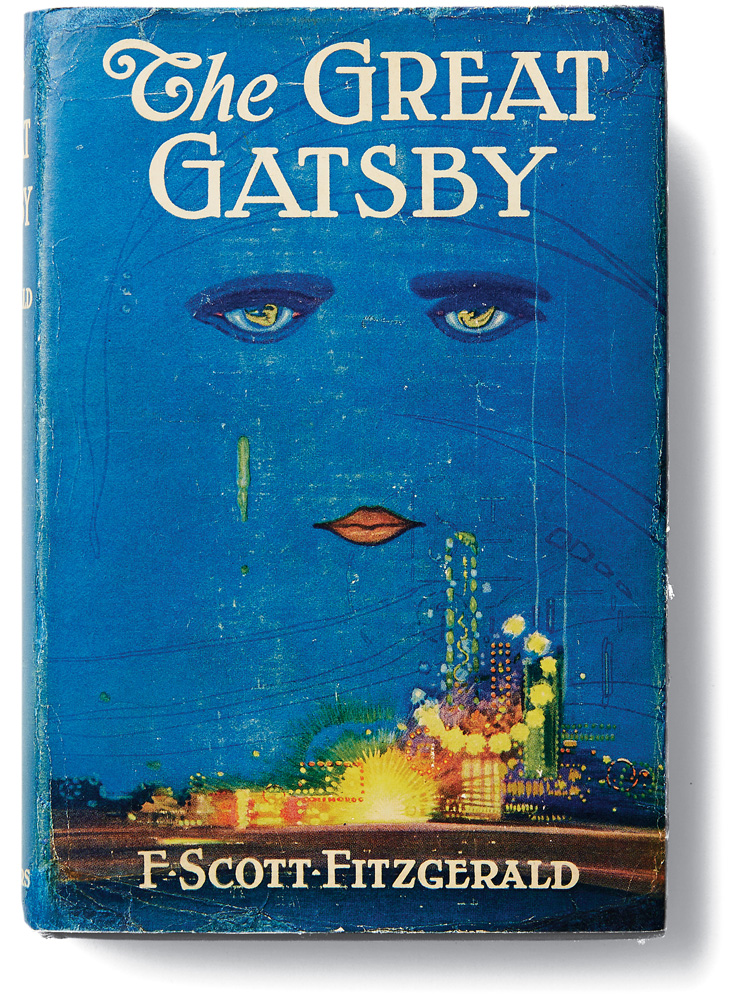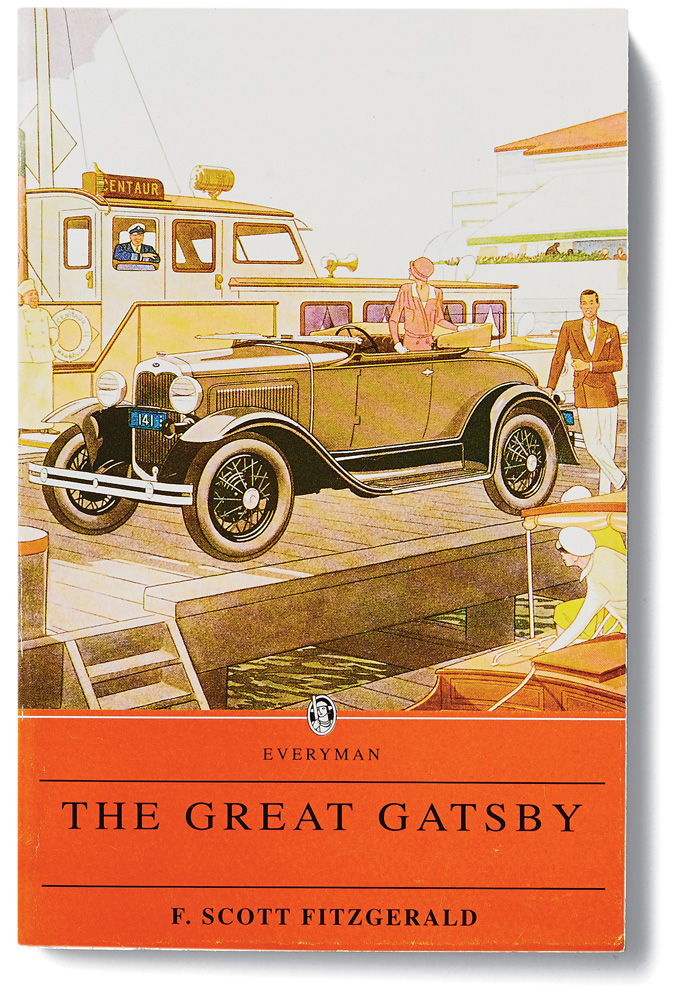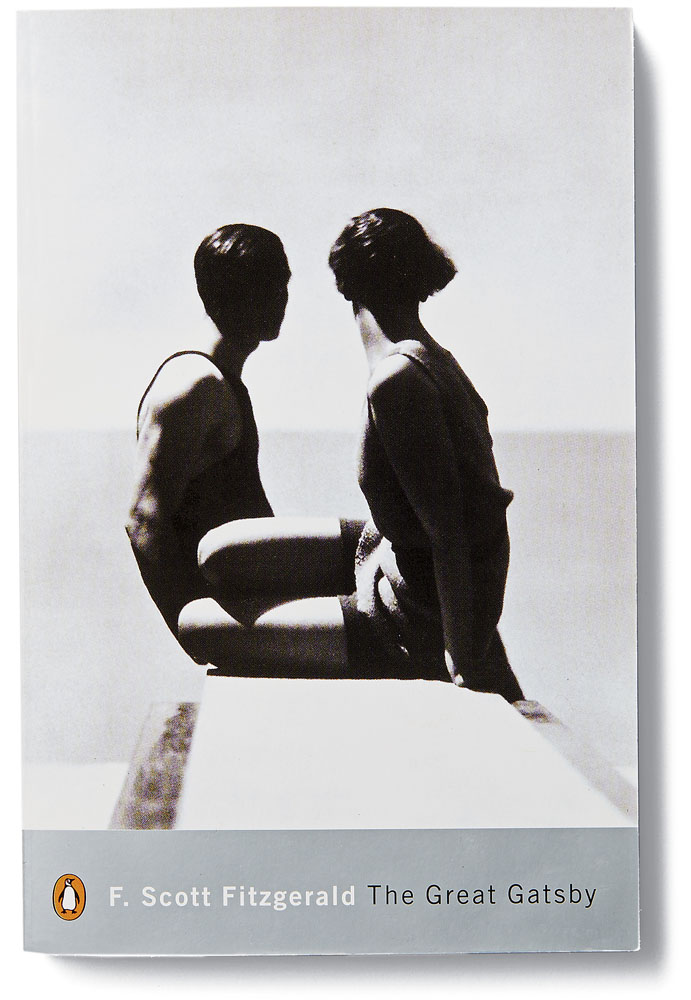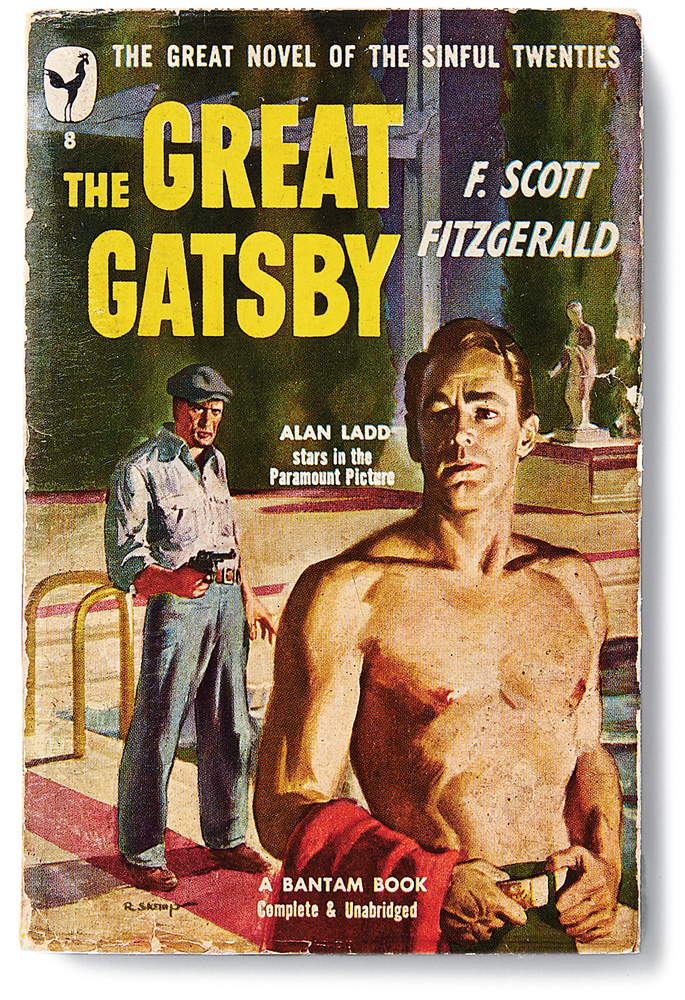Fitzgerald tried to make this an easy argument, putting the word “great” right there in the title. The Great Gatsby is continually lauded as indeed one of the greats, with numerous adaptations and persistent presence on syllabi and must-read lists, despite its initial dismissal by critics; the Guardian has a great rundown on its early years.
One of the reasons that most of its early readers couldn’t see Gatsby‘s greatness was because it, too, seemed merely to report on their modern world. What they couldn’t yet appreciate was that this insider’s guide to the enchantments of the jazz age was also an uncanny glimpse into the world to come.
This 75th anniversary close reading in Vanity Fair outlines its legacy and evergreen greatness:
It was nearly entitled just plain Gatsby. It remains “the great” because it confronts the defeat of youth and beauty and idealism, and finds the defeat unbearable, and then turns to face the defeat unflinchingly. With The Great Gatsby, American letters grew up.
Jesmyn Ward makes a compelling and generous case in the New York Times for re-reading The Great Gatsby, as a teacher of hard lessons:
One of the first great lessons of my adulthood was this: I change. As I grow, my dreams change, as do my ideas about who I can be and what I want during the short time I am alive. Gatsby has not learned this. It is a lesson he has closed himself to.
For contrast, here’s Kathryn Schulz on “Why I Despise The Great Gatsby“; and a great piece on the JSTOR blog about the persistent, all-American fun of picking the great American novel.
F. Scott Fitzgerald was reportedly so delighted by the now-famous cover of The Great Gatsby that he wrote it into the novel, as the Smithsonian reports:
In a letter to editor Max Perkins, Fitzgerald, whose manuscript was late, requested that the art be held for him. “For Christ’s sake don’t give anyone that jacket you’re saving for me,” Fitzgerald wrote, “I’ve written it into the book.” It’s not clear exactly what Fitzgerald meant by this, but it is generally believed that that [cover artist Francis] Cugat’s haunting image was realized in the form of the recurring billboard for oculist Dr. T.J. Eckleburg that watches over one of the climactic moments of Fitzgerald’s work.
Find other takes on this iconic cover in this fabulous New York Times gallery.
Now that you’ve heard the whole book out loud in one go… branch out! Check out this list of suggested readings for Gatsby-lovers. These titles pick up some of the themes of The Great Gatsby, and are written by authors with an eye toward a more diverse take on what it means to dream the American dream:
I don’t think The Great Gatsby is overrated. It does what it does very well. I think the main issue is that people are really ready to misread The Great Gatsby. I mean, Baz Luhrmann thought that the point of it was that it was a beautiful love story, not a commentary on the hollowness of American mythmaking and how ready we all are to delude ourselves with the “self-made man” for the sake of a good party. The misreading proves the point I guess — we’d prefer a love story.



